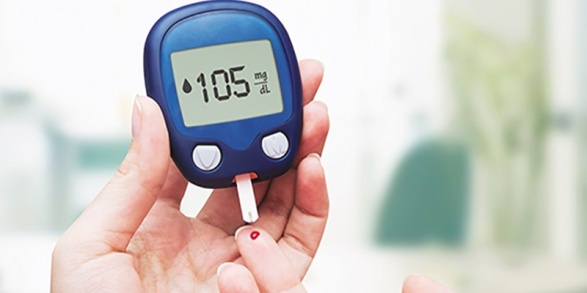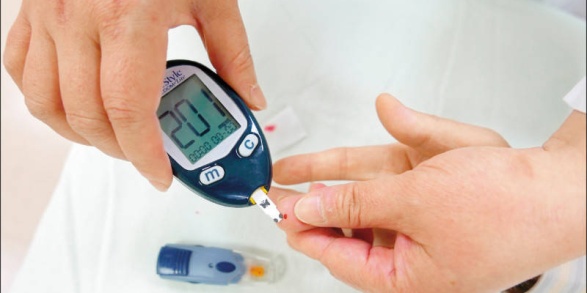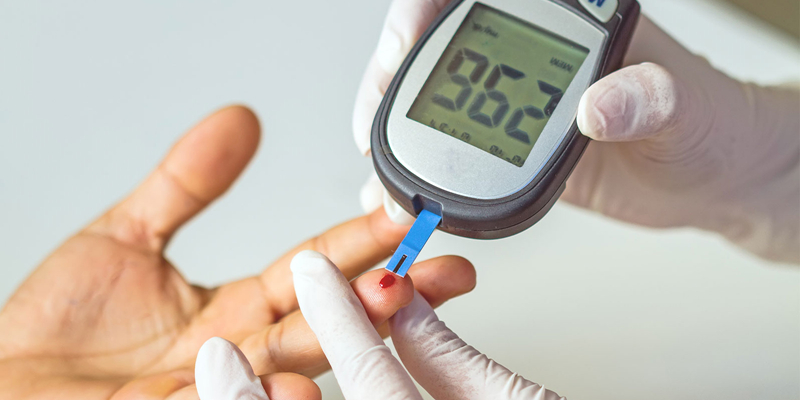5 Reasons You Should Monitor Your Blood Sugar Levels Regularly
5 Reasons You Should Monitor Your Blood Sugar Levels Regularly
Have you ever felt tired or sluggish or had headaches or irritability for no apparent reason? Unsteady blood sugar levels could be the culprit behind these less-than-desirable symptoms.
Like most of us, maintaining balanced blood sugar is likely off your radar. But it should be.
That rollercoaster you experience when you get "hangry" is a sign that blood glucose levels have dropped too low. Conversely, running too high causes its own set of concerning issues.
In this blog post, we'll explore why you should become your health advocate through regularly testing and managing this critical health indicator.
A few extra finger pricks can help set up a lifetime of quality health.

5 Reasons to Monitor Your Blood Sugar Levels Regularly
Routine blood sugar testing provides incredible health insights and benefits for protecting your well-being over the long haul. Let's explore the key reasons why becoming your blood sugar monitor makes good health sense:
1.Early Detection Allows for Swift Treatment and Prevention of Complications
Catching blood sugar changes early allows swift treatment interventions that can make all the difference in disease outcomes.
Consistently high blood glucose levels signal your doctor that diabetes or prediabetes may be present long before more severe symptoms arise. Identifying these conditions early gives you and your healthcare providers a critical jumpstart on managing them.
Getting proper treatment right from the beginning minimizes the likelihood of blood vessel and nerve damage when blood sugar is too high for too long. Starting management of prediabetes can allow some people to prevent a diabetes diagnosis altogether.
2.Testing Allows Insights on Lifestyle Adjustments and Medical Treatment Needs
Blood sugar numbers don't lie. The results of routine glucose monitoring give your doctor a reliable compass for steering treatment plans and lifestyle change recommendations uniquely suited to your health status.
Personalized data from self-blood sugar testing allows fine-tuning nutrition and exercise habits to bring levels into optimal balance efficiently.
Ongoing home readings also provide critical feedback on how well a diabetes or prediabetes medication regimen works for you.
Your physician can determine if medication types or dosages need to be adjusted for better efficacy based on your recorded highs, lows and in-range numbers. Any necessary tweaks can then be made, setting you up for improvement in the future.
3.Careful Blood Sugar Control Lessens the Risk of Emergency Situations
When blood glucose swings too low, it can rapidly lead to impaired functioning, confusion, loss of consciousness or seizures if left untreated. Episodes of severely elevated blood sugar also demand emergency care to prevent diabetic coma onset.
Catching blood sugar highs and lows early allows you to self-intervene with diet or medication before you end up requiring emergency assistance. This saves health crisis stress and avoids expensive ambulance transportation and hospital bills.
Additionally, keeping glucose levels routinely in check promotes consistent energy and mental clarity and considerably lowers safety risks in daily activities like driving.
4.Checking Blood Sugar Enables Better Daily Management to Prevent Symptoms
Trying to go about your daily routine when your body is dealing with blood sugar highs and lows can be frustrating at best. Symptoms like fatigue, irritability, inability to focus, blurred vision, headaches, and more can majorly disrupt your workflow and well-being.
Monitoring your levels routinely allows you to effectively prevent rollercoaster changes in glucose that lead to these undesirable symptoms. When you can catch a high or low blood sugar early, you can quickly intervene by adjusting food, activity or medication dosage to nip symptoms in the bud.
Stabilized blood sugar means feeling your best while going about your everyday personal and professional endeavours. Routine testing gives you the ability to achieve excellent daily blood sugar control.

5.Reduced Risk of Dangerous Long-Term Health Complications
Over years and decades, uncontrolled swings in blood glucose cause progressive damage to blood vessels and nerves. This significantly raises risks for visual impairment, kidney disease, heart attack, stroke, infections, digestive issues and more.
However, properly regulating your blood sugar can dramatically lower the likelihood of encountering these serious diabetes-related health threats as you get older. Catching problems early and monitoring routinely for improvement allows you to control your long-term wellness outlook better.
Conclusion
As you can see, regularly monitoring your blood sugar levels provides immense benefits for short-term health maintenance and long-term disease prevention.
Just like brushing your teeth, checking and managing blood glucose must become a regular ritual to reap the wellness rewards it offers.
Testing also guides beneficial nutrition and lifestyle tweaks, lowers risks of symptoms, complications and emergencies, and grants peace of mind. Make self-blood sugar monitoring a habit starting today!
FAQs
Q: How often should I test my blood sugar?
A: How often you should check your blood sugar depends on several factors. Ask your doctor what glucose testing frequency they recommend for your health status and needs. Most people with diabetes check blood sugar levels multiple times throughout the day.
Q: What blood sugar level is considered high?
A: Readings above 130 to 140 mg/dL (7.2 to 7.8 mmol/L) after a meal are elevated. Over 180 to 200 mg/dL (10 to 11.1 mmol/L) indicates high blood sugar or hyperglycemia, which requires diet, activity or medication management.











